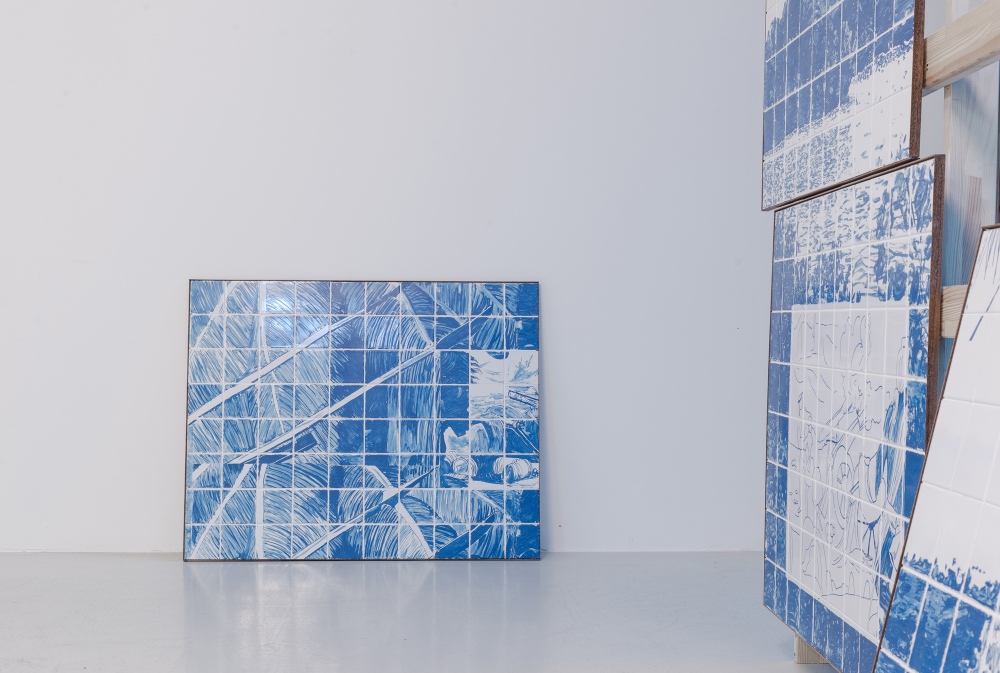Lucas Odahara

Os sons deles ecoando entre eu e você, 2017
Acrylic paint on ceramic tiles, wooden structure
500 x 250 x 60 cm
In May 2016, the Brazilian historian-activist Luiz Mott left several documents his NGO, the “Grupo Gay da Bahia”, had generated over the years to the Schwules Museum*. One such document was a small pamphlet recounting the murder of the “first indigenous gay martyr of Brazil,” Tibira do Maranhão – a Tupinamba man – by the French colonialists in 1614. Departing from this curious and relatively unknown incident, whose only record is in the travelogue of Yves d’Évreux, a French priest, the installation reconstructs a silenced historical scene: First he was baptized, in order to save his soul, then paraded around and given copious amounts of tobacco to smoke. Once intoxicated, he was placed into a cannon and blown up. The silent figures add up: Tibira’s fate belongs to millions of muted, marginalized, and othered voices, all echoing into the present day. The installation purposefully fragments images drawn from multiple sources, presenting a visual echo chamber: 17th century studies of Brazilian landscapes, flora, and native inhabitants by colonial-era painters, details of cannons and soldiers from Western war paintings of the time, a body cut up into pieces and scattered across the scene. Painted with blue ink on ceramic tiles, it aesthetically simulates precious porcelain, a medium often used to depict historical scenes from the Early Modern period of mercantile exchange. A handmade artist book, placed on a music stand in front of the painted tiles, translates various research strands into anecdotal scores. Collaborators contribute to the assembled texts with observations, images, and interviews on the role of sound in history, from modern political protest songs to the “language” of Amazonian birds.
text by Ashkan Sepahvand
*special thanks to Ashkan Sepahvand and Specht.
Images: Exhibition view at Schwules Museum*, Berlin, Germany, 2017. Photos: Daniel Weigel